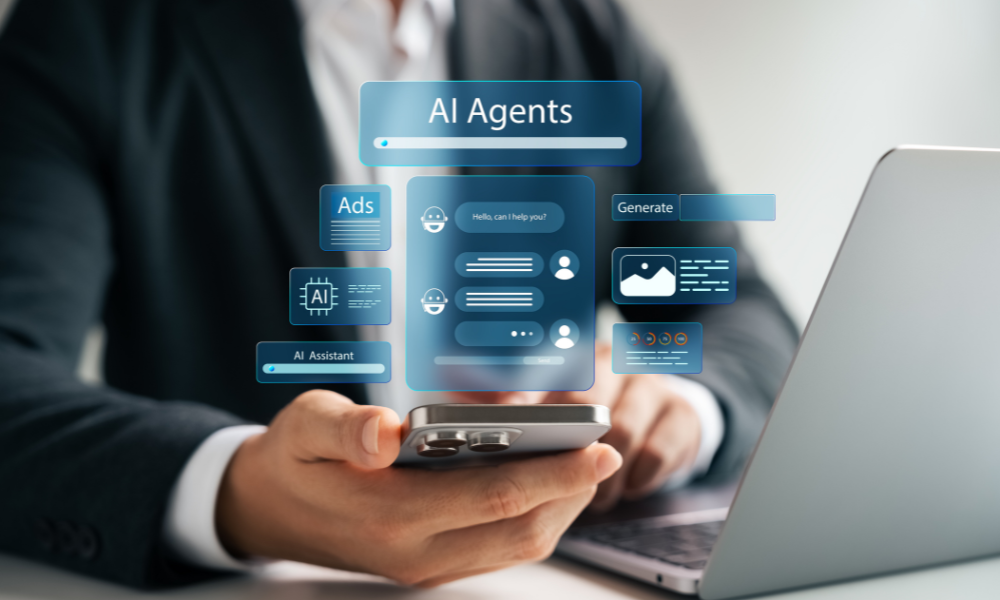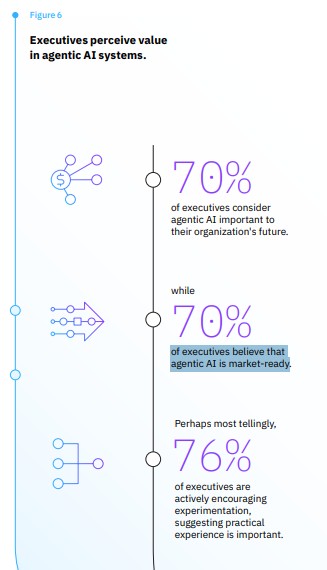
'We see more clients looking at agentic AI as the key to help them move past incremental productivity gains and actually gain business value from AI, especially when applied in their core processes'

Most employers are still far from benefitting from the full potential of artificial intelligence (AI), according to a recent IBM report.
Currently, only 23 per cent of business leaders globally say their organisation is leveraging AI to reimagine their business model.
Few say their organisation is using AI as a core engine for product and service innovation, or for end-to-end transformation of workflows (both 22 per cent), according to the report.
"AI’s greatest potential lies not in making existing processes marginally more efficient, but in enabling entirely new approaches to value creation and delivery," reads part of IBM’s report. "Most organisations are missing the opportunity for end-to-end transformation with AI."
In the field of human resources, AI’s value comes from its ability to enhance HR practices, not replace them — a topic covered in a session at HR FutureFest.
Business leaders expect AI-enabled workflows to grow from 3 per cent today to 25 per cent by the end of 2025, according to IBM’s survey of 2,900 executives globally.
And 70 per cent indicate that agentic AI is important to their organisation’s future.
Currently, 70 per cent of executives believe that agentic AI is market-ready, and 76 per cent are actively encouraging experimentation, suggesting practical experience is important.

The top five benefits of agentic AI systems that are driving adoption across industries, according to the report, are:
Over eight in 10 (83 per cent) of respondents say they expect AI agents to improve process efficiency and output by 2026, and 71 per cent believe agents will autonomously adapt to changing workflows, according to the report titled From AI projects to profits: How agentic AI can sustain financial returns.
"We see more clients looking at agentic AI as the key to help them move past incremental productivity gains and actually gain business value from AI, especially when applied in their core processes like supply chain and HR," says Francesco Brenna, VP & senior partner, AI Integration Services, IBM Consulting. "This isn't about plugging an agent into an existing process and hoping for the best. It means re-architecting how the process is executed, redesigning the user experience, orchestrating agents end-to-end, and integrating the right data to provide context, memory, and intelligence throughout."
Still, very few employers globally have structured plans to support workers, build skills, and lead through AI disruption. Specifically, just 10 per cent of companies qualify as “future-ready,” according to a previous report from The Adecco Group.
According to Dan Shapero, COO of LinkedInv, 2025 is “the year companies prepare to disrupt how work gets done”.
"As organisations look to fully embed AI into operations and processes, it will be on leadership to lead from the front – and actively manage this change in order to drive business growth and innovation," he says.
"By clearly aligning the work to the company's goals, building confidence among their teams working with AI, and proactively managing the shift in team responsibilities, leaders will create positive energy and excitement, while managing natural reluctance – and realise new value for their business."
However, too many CEOs say that most employees are resistant or openly hostile to AI, according to another report. And although 89% of Canadian business leaders say they're investing in upskilling employees, 53% admit that they don’t invest enough in training and learning opportunities for employees, KPMG found in a separate study.